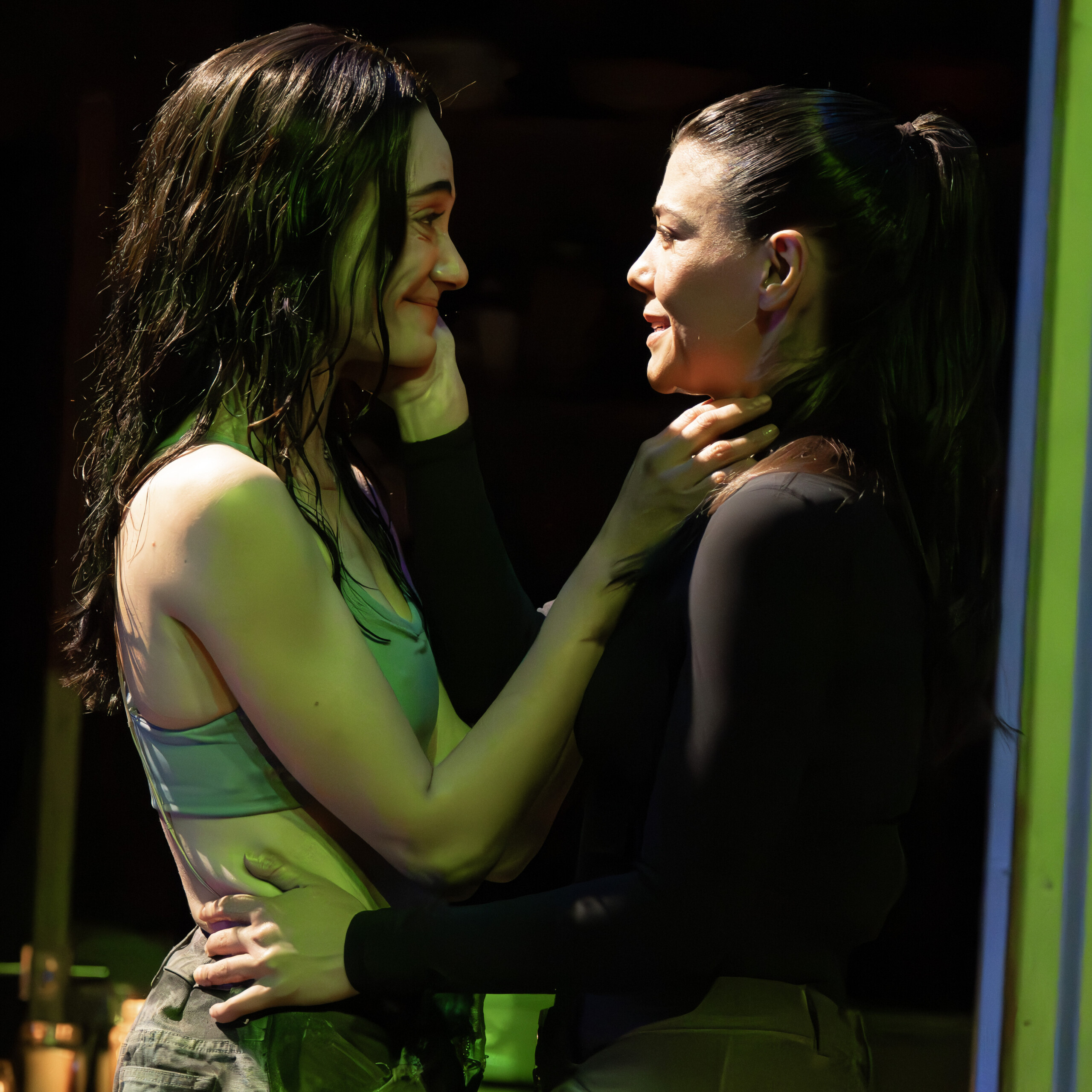Emmy Rossum and Zoë Winters in “Walden”
(Photo: Joan Marcus)
In the not-so-distant future, the boundaries between Earth and the cosmos are tested in Walden, a new play by Amy Berryman currently in previews and opening at Second Stage’s Tony Kiser Theater on November 7.
Centered on estranged twin sisters Stella and Cassie, played by Emmy Rossum, known for her role on Shameless and the film adaptation of The Phantom of the Opera, and Zoë Winters, best known for her role on Succession, the story dives into the complexities of sibling rivalry against a backdrop of a world grappling with climate change and humanity’s next steps in space exploration. As Stella and her fiancé Bryan (played by Motell Foster) await Cassie’s return from a successful moon mission at their remote cabin, old conflicts surface, forcing the sisters to confront their divergent paths and the weight of their shared upbringing.
(Photo: Joan Marcus)
“I wanted to explore the love and rivalry that exists in close relationships,” Berryman says. The playwright noted that both sisters embody different facets of herself, allowing viewers to ponder their choices in the face of overwhelming circumstances. “It’s about grappling with what you want versus what you can realistically achieve.” Her research included asking astronauts and scientists what happens when it’s too late to turn things around. “I want the audience to feel the weight of these decisions,” she says. “Who gets to pursue their dreams and at what cost?”
The chemistry between Rossum and Winters is palpable as they delve into their characters’ complexities. While learning to become twins, the two performers forged a strong bond. “We’re both fast walkers. We’re fast talkers. We’ve been reading a lot about twinships,” Winters says. “It’s giving twinsies,” director Whitney White jokes. “They’re working so hard on that, on finding that sisterhood, which has been really fun.”
White praises Berryman’s ability to interweave humor with serious themes. “Sisterhood, career, life-changing choices, motherhood, climate disaster—when you put those things out there, it might sound like a difficult essay to get through. Yet the language is deft and agile and easeful.”
“The writing is so beautiful and fast,” Rossum agrees. And the theme of motherhood, which loomed large for the actress during the pandemic (she now has two children, ages three and one), also drew her to the script. “It confronts monumental issues with a deeply human touch.” She emphasizes the play’s exploration of legacy, asking, “What do we leave behind for the next generation?” Winters echoes this sentiment. “It’s not just about ambition; it’s about what we inherit and how we choose to shape our futures.”




